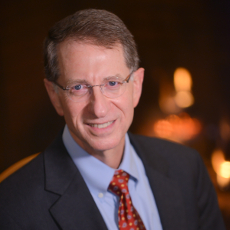
Dr. Blaiss
There is no doubt there are increasing frustrations in running a private practice in allergy, especially related to dealing with the requirements of numerous insurance companies, increased documentation, and electronic health record (EHR) headaches. That might explain the results of a recent survey by Merritt Hawkins, a company involved in physician recruitment service and innovation. The survey was emailed to 70,000 physicians this past August and 1,033 responded to the question “What is your position on a single-payer health care?” The responses indicated that 42% strongly support a single-payer health care system while 14% are somewhat supportive. Over one-third (35%) strongly oppose a single-payer system while 6% are somewhat against it. The remaining 3% neither support nor oppose single-payer. These results were very different from an identical survey done in 2008 where 58% of physicians opposed single payer while 42% supported it.
So why are we seeing such a shift of preference toward a single-payer system by physicians? Merritt Hawkins lists four reasons for this move. One, a single-payer system would reduce all the distractions in running a practice and allow the doctor to focus on patient care. Two, the survey showed younger physicians are more agreeable to a single-payer system, as this group is more accepting of the Affordable Care Act (ACA), Accountable Care Organizations, and EHRs. Three, many physicians are resigned that a single-payer system is going to come to the U.S., and we might as well get it over with. And lastly, there is a philosophical change among physicians that as many people as possible should have medical coverage. I think this became clear with the failure of Trumpcare, as many of the major medical organizations did not want to see the expanded Medicaid coverage brought in by ACA reduced.
I don’t know how many allergists answered the survey and if allergists reflect the same opinions as this general survey of physicians. My guess is that the allergy community is just as equally divided on the issue. Here are my views with the caveat that there is no perfect health care system. What’s the best alternative?
Personally, I don’t think we can fix the “free enterprise” system we have now when we have such a strong middleman, the insurance companies, driven by profits. I would prefer a system such as seen in Australia, which is a two-tier system where government health care may be less comprehensive than a true single-payer system but has a minimum level of coverage that can be supplemented by private insurance. In Australia, hospital treatment is covered by Medicare, which is the government universal health care plan for all citizens, yet most people pay a fee to see a primary care physician or for ambulance services. A majority of adults carry private insurance in Australia. So you decide if you want more health coverage and the amount of coverage you want, just like you now decide what level of automotive insurance or homeowner’s insurance you want to buy.
In the U.S. we spent 17.7% of our Gross National Product on health care, while in Australia it is only 8.9%, yet life expectancy is higher there than here. The Australian health care system recognizes the general practitioner as the manager of a patient's overall health care. The general practitioner directs referrals to specialists. Because patients in the U.S. generally have the right to self-refer to a specialist, the U.S. system has no real equivalent to the Australian general practitioner (Jones PD, et al. Differences and Similarities in the Practice of Medicine Between Australia and the United States of America: Challenges and Opportunities for The University of Queensland and the Ochsner Clinical School. The Ochsner Journal. 2011;11(3):253-258.)
So the Australian’s approach to specialty care may be a negative for the U.S. allergy community. I personally feel the advantages of their system outweigh the negative.
The bottom line is that the U.S. health care system will have to change and we, as allergists, must be part of the national debate. It is too important to us and to our patients to leave it up to only the politicians to make the changes in our health care system. How would you improve our health care system? Do you believe we are headed to a single-payer system? Let’s hear from you at info@acaai.org.
Michael Blaiss, MD, FACAAI, Executive Medical Director
